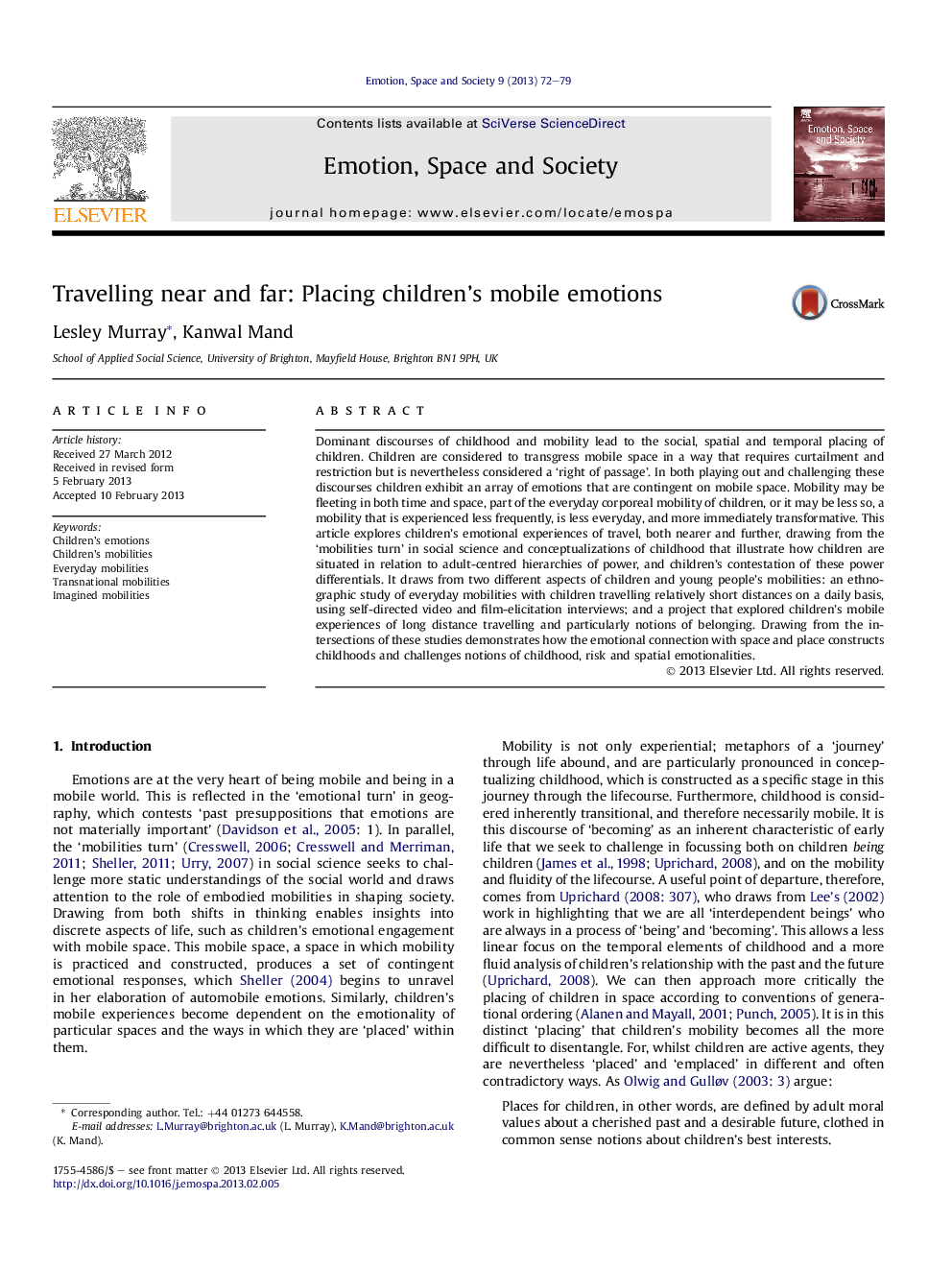| Article ID | Journal | Published Year | Pages | File Type |
|---|---|---|---|---|
| 7323461 | Emotion, Space and Society | 2013 | 8 Pages |
Abstract
Dominant discourses of childhood and mobility lead to the social, spatial and temporal placing of children. Children are considered to transgress mobile space in a way that requires curtailment and restriction but is nevertheless considered a 'right of passage'. In both playing out and challenging these discourses children exhibit an array of emotions that are contingent on mobile space. Mobility may be fleeting in both time and space, part of the everyday corporeal mobility of children, or it may be less so, a mobility that is experienced less frequently, is less everyday, and more immediately transformative. This article explores children's emotional experiences of travel, both nearer and further, drawing from the 'mobilities turn' in social science and conceptualizations of childhood that illustrate how children are situated in relation to adult-centred hierarchies of power, and children's contestation of these power differentials. It draws from two different aspects of children and young people's mobilities: an ethnographic study of everyday mobilities with children travelling relatively short distances on a daily basis, using self-directed video and film-elicitation interviews; and a project that explored children's mobile experiences of long distance travelling and particularly notions of belonging. Drawing from the intersections of these studies demonstrates how the emotional connection with space and place constructs childhoods and challenges notions of childhood, risk and spatial emotionalities.
Related Topics
Social Sciences and Humanities
Psychology
Social Psychology
Authors
Lesley Murray, Kanwal Mand,
